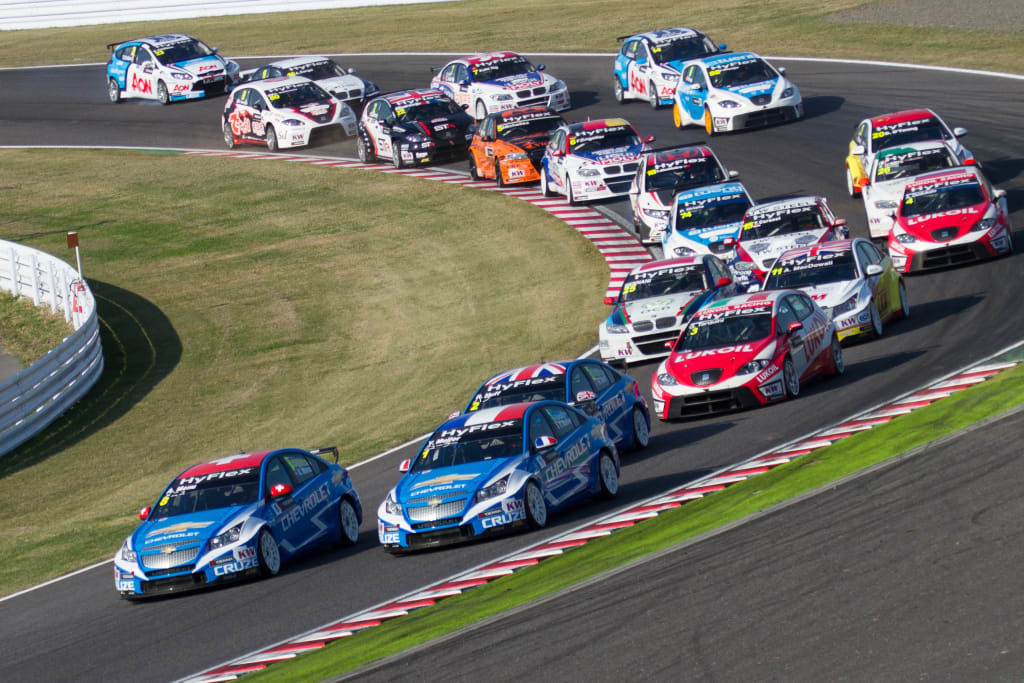Car Racing
It's long been said the first automobile race likely occurred shortly after the second car was built—just like it's probable your own competition history began when your age was still in single digits and you raced a friend or a sibling to the corner, to the dinner table, or to the exit at school.

It's long been said the first automobile race likely occurred shortly after the second car was built—just like it's probable your own competition history began when your age was still in single digits and you raced a friend or a sibling to the corner, to the dinner table, or to the exit at school. Wanting to know who's fastest begins with a simple foot race then extends to racing multimillion-dollar sports cars until they break, crash, or win.
But there's even more to sports car racing. It is one of the few motorsports where "Win on Sunday, sell on Monday" may still apply: No one looks at a Ferrari Formula 1 car or a NASCAR Monster Energy Cup car and believes the machines on the track share any meaningful parts with supposedly related street models. In multiple sports car classes, though, the cars not only resemble the models they represent, but they also often begin life as a real production car. And technology from the circuit does make its way into production models, something sports car racing has prided itself on for decades.Take Porsche, for example: The company created the 550 for its first factory racing program, and it immediately won the Nürburgring race in 1953. A five-speed transmission with Porsche-developed synchronization gave birth to the transmission introduced in the 901/911 production cars in 1963. Porsche used two spark plugs per combustion chamber in its race engines—and that idea was introduced in the 911 Carrera in 1990. The 959, developed in 1983 for a particular racing class, had an all-wheel-drive system with variable control of the center differential lock; Porsche adapted it for use in the 1990 Carrera 4.
Tech transfer of course applies to performance, but it has also resulted in massive safety improvements: advances in tires, brakes, traction control, crash absorption, collapsible steering columns, data gathering, and more. And everything developed for racing is automatically tested under grueling conditions."It's difficult to imagine what the Corvette brand would look like without the Corvette Racing program," Tadge Juechter (above), chief engineer for Corvette, says. "For 20 years we have been working toward total integration of the race and street car teams. Endurance racing provides us with a treasure trove of information in any number of areas—aerodynamics, engine performance, and chassis, to name a few. That kind of real-world data is highly valuable to production engineers and designers, and we have made great use of those lessons from the racetrack."Racing has always played a large role in the automotive industry. Automakers love to boast about racing wins, competing in specific series, and all of their sponsorships. Beyond being a sport where the best drivers and teams are pitted against one another, modern racing is equally as competitive on the tech front. Car racing has evolved to be so much more than just watching fast cars drive around a track, so we have put together this list of all the major types of auto racing that you can watch on TV and even take part in.
CONTENTS
Open-Wheel
Sports Car
Touring Car
Production Car
Stock Car
Car racing is a global phenomenon with races being held around the world at a series of historic race tracks. On this list, you’ll find everything from iconic 24-hour races to quarter-mile drag races. Unfortunately, a lot of series aren’t readily available to watch in the U.S. For car enthusiasts in America, though, you will be able to find NASCAR, drag racing, and Global Rallycross (GRC) readily available on television. If you’re really looking into racing, there are a few series that you can even compete in.





Comments
There are no comments for this story
Be the first to respond and start the conversation.